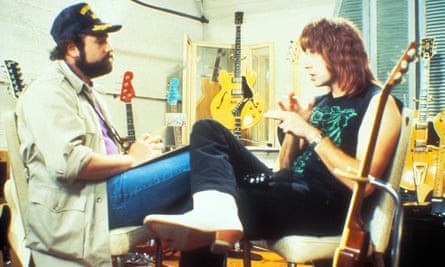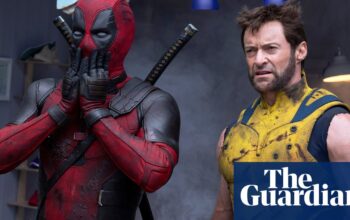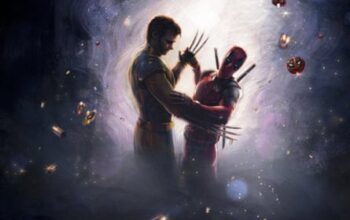Natural bands are formed through a combination of chemistry, inspiration, and boredom, rather than through traditional methods such as want ads or flyers on telephone poles.
Frequently, a group of individuals, typically men, will gather and realize they have a strong connection, bonding over their similar interests. Eventually, they become eager to take action. What starts as playing around often turns into creating music together, and this can sometimes lead to being paid for their performances with beer money. For many musicians, their love of rocking out began as a fun way to spend time with friends and evolved from childhood play to making music. This sense of friendship and camaraderie can be seen in everything from the playful antics in A Hard Day’s Night to the humor on Boygenius’s social media platforms. This connection is essential when locking into a groove, allowing for an unspoken understanding and collaboration among the group. It’s a phenomenon that can almost be considered magical and is one of the most powerful forces on Earth.
A less impressive version of this phenomenon occurs when improv comedians effortlessly connect with each other’s thoughts as they navigate through a scene together. They constantly remind us of the similarity between comedy and rock stardom, using terms like “gigs,” creating their own posters, and occasionally sharing a stage with their college radio idols. Credit should be given to Michael McKean and Christopher Guest for achieving both careers. Their greatest collaboration, This Is Spinal Tap, debuted in theaters 40 years ago and has been praised for its accurate portrayal of eras and genres. The parody songs are successful because they sound just like the real thing, but the film also remains a classic because of the genuine portrayal of band dynamics. Beneath the iconic catchphrases, there is a tight group of silly friends trying to make each other laugh while entertaining the rest of us.
Guest and McKean became acquainted during their days at college in the late 1960s, thanks to their shared interest in using clever humor in their artistic pursuits. Guest, who came from a well-off family with British roots in government, had a solid musical background, learning to play the clarinet and mandolin and collaborating with childhood friend Arlo Guthrie on guitar. He also wrote spot-on parodies of musicians such as Bob Dylan and James Taylor for the National Lampoon Radio Hour. McKean, on the other hand, grew up in a family involved in the music industry, with his father being one of the co-founders of Decca Records. He honed his skills as a guitarist for the band The Left Banke, known for their fusion of Baroque pop and rock music. McKean’s talents later landed him a breakthrough role as an actor on the popular TV show Laverne & Shirley, where he starred alongside his college friend David Lander. Their characters, Lenny and Squiggy, became fan favorites and their success led to the release of a mock album under the name Lenny and the Squigtones. Interestingly, the album’s liner notes listed “Nigel Tufnel” as the guitarist, a pseudonym that Guest would later use for a television pilot he shot around the same time with director Rob Reiner and another colleague from the LA comedy group the Credibility Gap, Harry Shearer.
The TV show, tentatively titled “The TV Show,” failed to launch, but it laid the foundation for the immature, proto-hair-metal band, Spinal Tap. Actor McKean, playing David St. Hubbins, reflects on the blurry line between stupidity and cleverness – a theme that unofficially guides the project. The members – a group of chauvinistic fools consisting of David and Nigel as the warring John and Paul, Shearer as peacemaker Derek Smalls, and a revolving door of doomed drummers – offer absurd tidbits, so interwoven with their own outlandish reasoning, that they become brilliant. They play with language and phrases like melodies, leading themselves into dead ends to remind us that their material is impromptu. For instance, their infamous question, “How much more black could it be? And the answer is none. None … more black.”

Display the image in full-screen mode.
After the year 2000, the successful approach of assembling a comedic team and allowing them creative freedom resulted in the excessive and self-indulgent productions by the Apatow Company, a stark contrast to the disciplined and efficient techniques of Reiner. The use of a mockumentary style allowed for well-constructed setups and punchlines, with each segment in the 82-minute runtime focused on generating laughter. Reiner’s use of a handheld 16mm camera allowed for spontaneity among the cast, giving room for improvisation and enhancing their performances. The supporting cast – such as Fran Drescher as the skilled publicist Bobbi Flekman, Fred Willard as a traditional air force lieutenant, and real-life band leader Paul Shaffer as the incompetent promoter Artie Fufkin – seamlessly blended in with the group, like talented session musicians joining in for a few songs. The collaborative efforts of McKean, Guest, Shearer, and Reiner, who all contributed to the script, resulted in a multitude of visual jokes, as seen in the escalating methods used to free Derek from a large amniotic egg, ever climbing from pliers to a blowtorch.
From the top of the charts to opening for a puppet show, the rising and falling fortunes of Spinal Tap reiterate a familiar showbiz arc, dotted with behind-the-music tropes including the Yoko-esque girlfriend exacerbating intra-band tensions and the long-suffering manager permanently at the end of his rope. The film likewise spoofs specific corners of pop-cultural output, with Spinal Tap’s pivots from Ed Sullivan-era Beatles to floral psychedelia to testosterone-fueled cock-rock casting them as shameless trend-chasers. They have this much in common with their spiritual son Dewey Cox, though the film’s closest descendant would have to be Popstar: Never Stop Never Stopping, which also drew on the long-honed rapport between true friends for an industry cautionary tale about remembering who your people are. Guest would stick by his as he took the director’s chair in the 90s, enamored with his stable of oddballs good on their feet. His breakthrough Waiting for Guffman profiled another collection of the clueless bonded by the pleasure they take in putting on a show together, an ensemble playing for a pathetic love of the game rather than chicks and money. But it was never really about that for Spinal Tap, either. One gets the sense they and the men playing them do this mainly for each other, and that it’s our privilege to hang out too.
Source: theguardian.com


